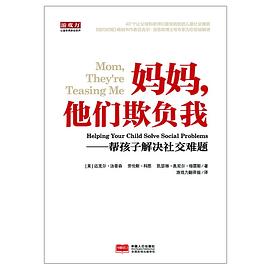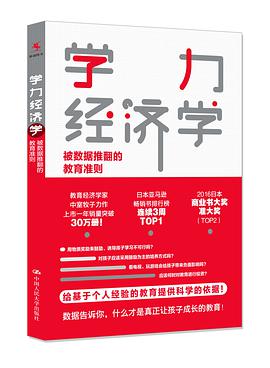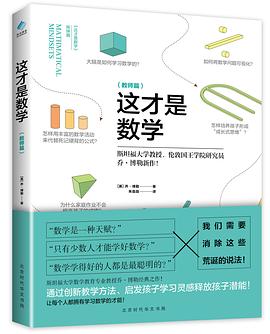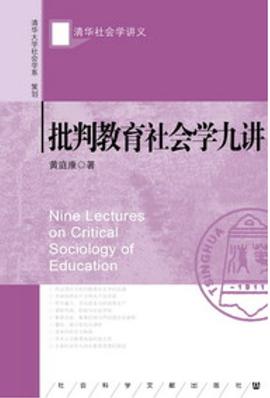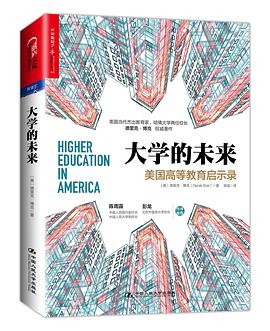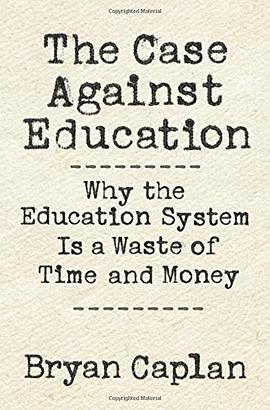

具体描述
I'm Bryan Caplan, Professor of Economics at George Mason University and blogger for EconLog. I am the author of The Myth of the Rational Voter, named "the best political book of the year" by the New York Times, Selfish Reasons to Have More Kids, and The Case Against Education. I am currently colloborating with *Saturday Morning Breakfast Cereal*’s Zach Weinersmith on All Roads Lead to Open Borders, a non-fiction graphic novel on the philosophy and social science of immigration, and writing a new book, Poverty: Who To Blame. I've published in the New York Times, Washington Post, Wall Street Journal, The Atlantic, American Economic Review, Economic Journal, Journal of Law and Economics, and Intelligence, and appeared on ABC, Fox News, MSNBC, and C-SPAN. An openly nerdy man who loves role-playing games and graphic novels, I live in Oakton, Virginia, with my wife and four kids.
Despite being immensely popular--and immensely lucrative—education is grossly overrated. In this explosive book, Bryan Caplan argues that the primary function of education is not to enhance students' skill but to certify their intelligence, work ethic, and conformity—in other words, to signal the qualities of a good employee. Learn why students hunt for easy As and casually forget most of what they learn after the final exam, why decades of growing access to education have not resulted in better jobs for the average worker but instead in runaway credential inflation, how employers reward workers for costly schooling they rarely if ever use, and why cutting education spending is the best remedy.
Caplan draws on the latest social science to show how the labor market values grades over knowledge, and why the more education your rivals have, the more you need to impress employers. He explains why graduation is our society's top conformity signal, and why even the most useless degrees can certify employability. He advocates two major policy responses. The first is educational austerity. Government needs to sharply cut education funding to curb this wasteful rat race. The second is more vocational education, because practical skills are more socially valuable than teaching students how to outshine their peers.
Romantic notions about education being "good for the soul" must yield to careful research and common sense — The Case against Education points the way. (less)
用户评价
##Bryan Caplan是一个论证非主流观点的天才,不管你同不同意他的结论,他的写作读起来畅快无比
评分##很有说服力 但是没有实验证明
评分 评分 评分##刚看的时候感觉很爽,本身我也不是个好学生,还嫌自己在学校玩儿少了,真不该上那些莫名其妙的课。看到后来其实也扪心自问,既然大家应该注重真正的能力而不是学历,那么我真正的能力究竟如何呢?我在对现行教育制度嗤之以鼻的同时,真的没有占它一点好处吗?真的就没有学历比我低,而能力远大于我的人吗?
评分 评分这本书花了十个章节来理论为什么教育系统是在浪费钱和时间,我看完两个章节就被说服了...正在苦恼剩下八个章节还要不要读
评分##trolling with bountiful quantitative studies lol. i m convinced. i especially like the part where he confessed that some data he used r practically guesswork. zero chance of the policies proposed in the book will be implemented though. will read up all his works.
相关图书
本站所有内容均为互联网搜索引擎提供的公开搜索信息,本站不存储任何数据与内容,任何内容与数据均与本站无关,如有需要请联系相关搜索引擎包括但不限于百度,google,bing,sogou 等
© 2025 book.qciss.net All Rights Reserved. 图书大百科 版权所有






